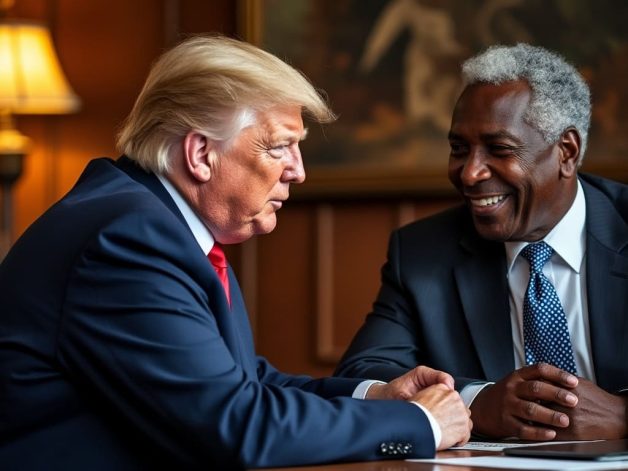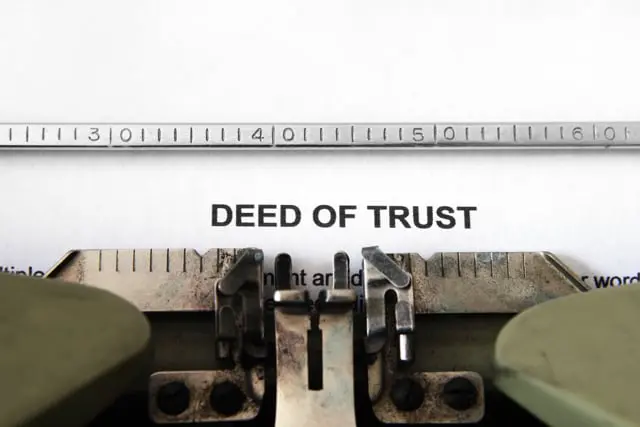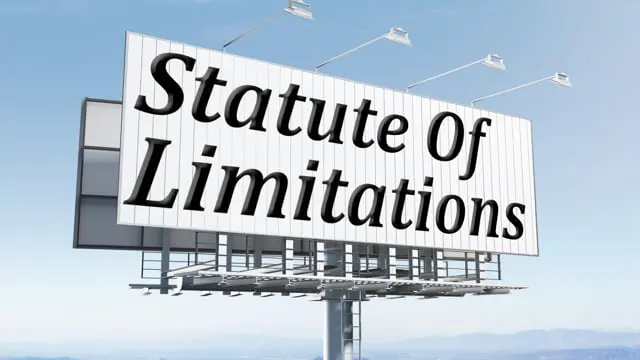The long-running copyright infringement lawsuit between former President Donald Trump and Guyanese-British musician Eddy Grant has finally reached a settlement, marking the end of a contentious legal battle over the unauthorized use of Grant’s hit song “Electric Avenue” in a 2020 campaign video. This case has drawn significant attention not only for its high-profile defendant but also for its implications on the use of copyrighted music in political campaigns and the boundaries of fair use in the digital age.
The dispute began when Trump’s campaign posted a 55-second animated video on Twitter (now X) that featured Biden slowly operating a handcar while Trump’s campaign train sped past, all set to the unmistakable beat of “Electric Avenue.” Grant promptly filed a lawsuit, arguing that the use of his song without permission constituted copyright infringement. The case, which dragged on for over four years, highlighted the complex intersection of copyright law, political speech, and social media.
At the heart of the legal battle was Trump’s claim that the use of “Electric Avenue” in the campaign video constituted fair use under copyright law. Fair use is a legal doctrine that allows limited use of copyrighted material without permission for purposes such as commentary, criticism, or parody. However, U.S. District Judge John G. Koeltl ultimately rejected this argument, ruling that the Trump campaign’s use of the song did not meet the criteria for fair use.
The court’s decision to grant summary judgment in favor of Grant was based on several key factors. First, Judge Koeltl found that the use of “Electric Avenue” in the campaign video was not transformative. The song was used in its entirety without any alteration, and it did not serve to comment on or criticize the original work. Instead, the court determined that the song was used purely for its entertainment value and to enhance the appeal of the campaign message.
Furthermore, the judge noted that the political nature of the video did not automatically render its use of copyrighted material fair use. This ruling is significant as it clarifies that political campaigns cannot simply appropriate copyrighted works under the guise of political speech without considering the rights of copyright holders.
The case also touched on the issue of music licensing in political campaigns, a topic that has become increasingly contentious in recent years. Many artists have expressed frustration with politicians using their music without permission, often in support of causes or candidates they do not endorse. The Grant v. Trump case serves as a reminder that political campaigns must obtain proper licenses or permissions before using copyrighted music, even in the context of social media content.
The settlement of this lawsuit raises important questions about the future of copyright enforcement in the digital age, particularly in the realm of political advertising and social media campaigns. As campaigns increasingly turn to platforms like Twitter, Facebook, and YouTube to reach voters, the potential for copyright infringement grows. This case may serve as a deterrent to campaigns considering using copyrighted material without permission, potentially leading to more rigorous vetting processes for campaign content.
The implications of this case extend beyond just political campaigns. It underscores the importance of respecting derechos de propiedad intelectual in all forms of digital content creation. Content creators, whether they are individuals, businesses, or political entities, must be aware of the legal ramifications of using copyrighted material without proper authorization.
One of the key aspects of the case was the court’s analysis of the four factors of fair use as outlined in copyright law. These factors include the purpose and character of the use, the nature of the copyrighted work, the amount and substantiality of the portion used, and the effect of the use on the potential market for the copyrighted work. In each of these areas, the court found that the Trump campaign’s use of “Electric Avenue” did not qualify as fair use.
The purpose and character of the use were deemed non-transformative, as the song was used in its entirety without alteration or commentary. The nature of the copyrighted work, being a creative musical composition, placed it at the core of copyright protection. The amount used was substantial, with the song playing for more than two-thirds of the video. Finally, the court found that widespread, uncompensated use of Grant’s music in promotional videos would undermine his ability to license the song, thus affecting the potential market for the copyrighted work.
This ruling provides valuable guidance for future cases involving the use of copyrighted music in political campaigns and other forms of digital content. It emphasizes that even in the context of political speech, which enjoys strong protection under the First Amendment, copyright law still applies and must be respected.
The settlement of the lawsuit also brings attention to the broader issue of artists’ rights in the digital age. Many musicians and songwriters have expressed frustration with the unauthorized use of their work, particularly when it is associated with political causes or candidates they do not support. This case may empower artists to take more aggressive action to protect their intellectual property and control how their music is used in political contexts.
The Trump campaign’s defense strategy in this case is also worth examining. Throughout the litigation, the campaign maintained that they did not produce the video but merely shared it. This argument raises interesting questions about liability for copyright infringement in the age of social media sharing. While the court did not ultimately accept this defense, it highlights the complex legal issues surrounding content sharing and reposting on social media platforms.
Another significant aspect of the case was the court’s rejection of the Trump campaign’s argument regarding the copyright registration of the “Electric Avenue” sound recording. The campaign had contended that the sound recording was not properly registered with the U.S. Copyright Office at the time of the alleged infringement. However, the court found that the inclusion of “Electric Avenue” in a 2002 registration of a greatest hits compilation was sufficient to establish copyright protection for the sound recording.
This ruling underscores the importance of proper copyright registration and the complexities that can arise when dealing with musical works that have been released and re-released in various formats over time. It serves as a reminder to copyright holders to ensure their works are properly registered and to keep thorough records of all copyright registrations and transfers.
The settlement of this case may also have implications for how political campaigns approach social media strategy in the future. The ease with which content can be shared and repurposed on social media platforms has led to a culture of rapid content creation and dissemination. However, this case demonstrates that even in the fast-paced world of social media campaigning, copyright laws must be respected.
Political campaigns may need to implement more rigorous vetting processes for social media content, including checks for potential copyright infringement. This could potentially slow down the pace of social media campaigning but would help protect campaigns from costly legal battles and negative publicity.
The case also highlights the potential reputational risks associated with copyright infringement for political campaigns. The prolonged legal battle and eventual settlement may have damaged the Trump campaign’s image and distracted from its political message. This serves as a cautionary tale for other political campaigns about the importance of respecting intellectual property rights.
From a broader perspective, the Grant v. Trump case contributes to the ongoing dialogue about the balance between copyright protection and free speech in the digital age. While political speech is afforded strong protection under the First Amendment, this case demonstrates that such protection does not extend to the unauthorized use of copyrighted material.
The settlement of this lawsuit may also influence how courts approach similar cases in the future. While the terms of the settlement are confidential, the fact that Trump chose to settle rather than appeal the summary judgment ruling suggests that his legal team saw little chance of success on appeal. This could encourage other copyright holders to pursue legal action against unauthorized use of their work in political contexts.
The case also raises interesting questions about the role of social media platforms in policing copyright infringement. While platforms like Twitter have mechanisms in place for copyright holders to report infringement, the rapid spread of content on these platforms can make it challenging to address infringement in a timely manner. This case may prompt discussions about whether social media platforms need to implement more robust systems for detecting and preventing copyright infringement.
Looking forward, the outcome of this case may influence how political campaigns approach music licensing. Rather than risking legal action by using copyrighted music without permission, campaigns may be more inclined to seek proper licenses or to commission original music for their advertisements and social media content.
The case also underscores the importance of artists’ moral rights, a concept that is more developed in some other countries than in the United States. Moral rights include the right of attribution and the right to preserve the integrity of one’s work. While U.S. copyright law does not explicitly recognize moral rights for musical works, cases like this highlight the desire of artists to control how their work is used and presented, particularly in political contexts.
From a legal strategy perspective, the case demonstrates the risks of relying heavily on a fair use defense in cases of clear, unaltered copying. While fair use is an important doctrine that allows for certain unauthorized uses of copyrighted material, it is not a blanket protection for all political or social media uses. Campaigns and content creators should be cautious about assuming that their use of copyrighted material will be protected under fair use.
The settlement of this case also raises questions about the effectiveness of cease-and-desist letters in the digital age. Grant’s legal team sent a cease-and-desist letter to the Trump campaign shortly after the infringing video was posted, but the video remained online, accumulating millions of views. This suggests that in the fast-paced world of social media, traditional legal remedies may not always be sufficient to prevent the spread of infringing content.
Another interesting aspect of this case is its potential impact on the music industry’s approach to licensing for political campaigns. Some artists and music publishers may become more proactive in explicitly prohibiting the use of their music in political campaigns or may develop specific licensing structures for political uses.
The case also highlights the potential for copyright law to be used as a tool for artists to distance themselves from political figures or causes they do not support. By asserting their copyright, artists can prevent their work from being associated with political messages that may conflict with their personal beliefs or damage their public image.
From a technological perspective, the case raises questions about the role of content identification systems in preventing copyright infringement on social media platforms. As artificial intelligence and machine learning technologies advance, platforms may be able to develop more sophisticated systems for identifying potentially infringing content before it is widely shared.
The settlement of this lawsuit may also influence how damages are calculated in future copyright infringement cases involving political campaigns. While the terms of the settlement are confidential, the potential for statutory damages of up to $150,000 per infringed work likely played a role in the decision to settle.
Looking at the broader legal landscape, this case is part of a trend of increased scrutiny of copyright issues in the digital age. As more content is created and shared online, courts are grappling with how to apply traditional copyright principles to new technologies and modes of communication.
The case also underscores the global nature of copyright law in the digital age. While this case was litigated in the United States, the ability to share content instantly across borders raises complex questions about jurisdiction and enforcement of copyright laws internationally.
En conclusión, la liquidación of the copyright infringement lawsuit between Eddy Grant and Donald Trump over the use of “Electric Avenue” in a campaign video marks a significant moment in the ongoing dialogue about copyright, fair use, and political speech in the digital age. The case serves as a reminder of the importance of respecting intellectual property rights, even in the fast-paced world of political campaigning and social media. It also highlights the complex legal issues that arise at the intersection of copyright law, political speech, and digital content creation. As technology continues to evolve and reshape how we create and share content, cases like this will play a crucial role in shaping the future of copyright law and its application in the digital realm.
Fuentes:
- https://completemusicupdate.com/donald-trump-settles-copyright-case-filed-by-eddy-grant-over-a-2020-campaign-video/
- https://www.hypebot.com/hypebot/2024/09/exploring-copyright-issues-in-eddie-grant-vs-donald-trump.html
- https://repository.law.miami.edu/umblr/vol31/iss3/4/
- https://lawandcrime.com/high-profile/trump-settles-copyright-lawsuit-with-singer-eddy-grant-ending-years-long-legal-battle-over-unauthorized-use-of-electric-avenue-in-video-that-mocked-joe-biden-as-slow/
- https://copyrightlately.com/eddy-grant-prevails-in-copyright-lawsuit-against-trump-campaign/
- https://nysba.org/were-gonna-rock-down-to-copyright-protection-the-unauthorized-use-of-popular-music-in-political-campaigns-during-the-social-media-era/








